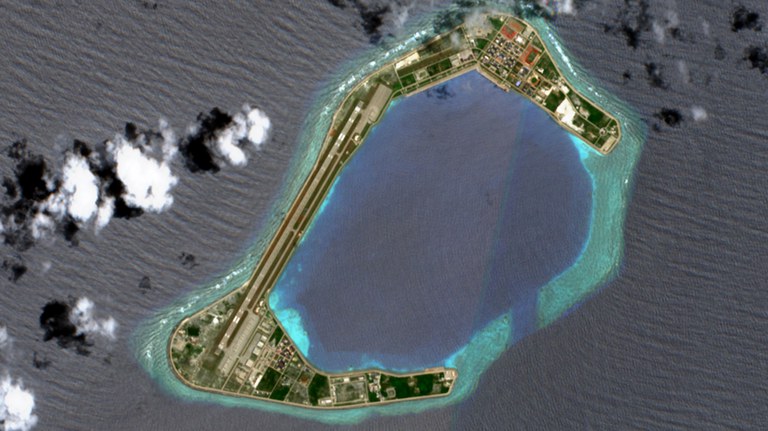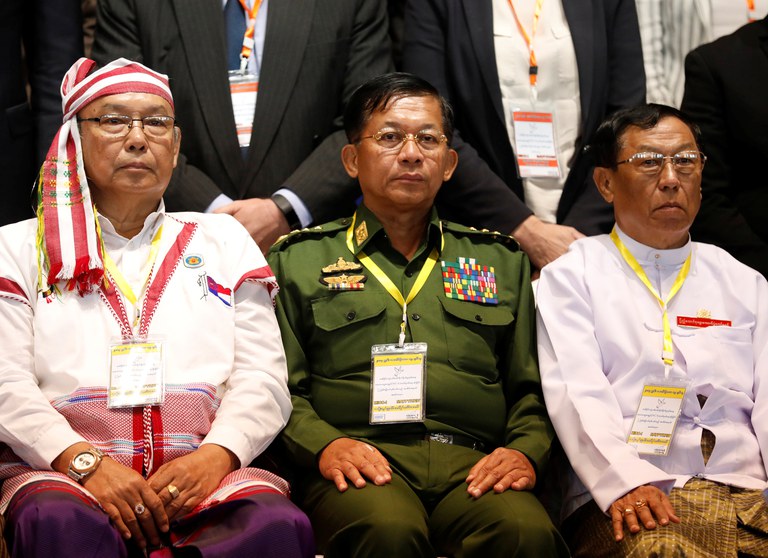Chinese border police ‘clipping’ passports of citizens as they arrive back home
Border police in Guangzhou have stepped up controls on incoming Chinese citizens, questioning them about their overseas activities and confiscating passports, amid ongoing controls on people leaving the country. Passengers arriving in Guangzhou aboard China Southern flight CZ3082 from Bangkok on Sunday morning were all questioned individually by immigration officials at the airport, according to a social media post from one of the passengers. Border guards wanted to know what they had been doing in the countries they were returning from, why they were coming back to China, and whether they planned to leave the country again, the post said. Some passengers had their passport corners clipped, invalidating them for further travel, the post said. The report came days after the National Immigration Administration held a news conference announcing “strict reviews” of travel documents and visas, and calling on Chinese nationals not to leave the country unless absolutely necessary. Spokesman Chen Jie said immigration authorities were “continuing to maintain the highest level of prevention and control,” resulting in “low levels” of outbound passengers at border crossings and airports. A Chinese national surnamed Zhang said border guards often use passport-clipping as a way to prevent people from leaving the country, and anyone hoping to leave must first get an exit permit, signed by their local police station. “My passport was clipped two or three years ago now,” Zhang said. “There has been a strict requirement for exit permits for two years, and basically the border guards don’t want people to leave on Chinese passports.” Students blocked from travel Reports continue to surface on social media of people leaving China for foreign study having their passports clipped as they tried to board a plane, and also from people who had been denied passports when they applied for them. “There have been a lot of posts saying that people are being rejected when they apply for passports, or when they try to renew them,” a current affairs commentator surnamed Lu told RFA. “It shows that the Chinese government is trying to reduce the number of Chinese people leaving the country,” he said. “They are worried that if they do, they’ll find out what the situation is in the rest of the world.” An employee at an overseas study consultancy surnamed Huang said the government has suspended permission for minors in primary and secondary school to study abroad. “The government has said that nobody should leave the country unless it’s absolutely necessary,” Huang told RFA. “Parents aren’t allowed to send their children overseas too young either.” “Before, parents could send their kids to secondary school in Thailand or the U.K., but they’ve stopped allowing that now,” she said. “They’re only allowed to go overseas at university level.” “What does this have to do with the pandemic? They just don’t want so many people leaving,” Huang said. She said the government is concerned that children will be inculcated with “Western values” overseas. “Then, they’ll be less easy to control after they get back,” Huang said. “The more they know, the more ideas they get; they don’t need them to know much, just be a simple worker. Too many ideas and they raise objections to every suggestion: how is that manageable?” Huang said she expects the restrictions to stay in place even after zero-COVID controls have lifted. ‘Illegal entry and exit’ The immigration authorities said a crackdown on “illegal entry and exit” was under way. “The police have … strengthened full-time and all-region patrols, controls and investigations, closely cooperating with law enforcement in neighboring countries to crack down hard on illegal entry and exit activities,” the agency’s Chen said at the April 27 news conference. “People are coming in and out through illegal channels,” Chen said. “Border guards at land, sea and air checkpoints … are taking measures appropriate to local conditions and circumstances.” But Chen didn’t explain which “illegal channels” were being used. Police in the central province of Hunan in April confirmed to RFA that that residents had been ordered to hand over their passports to police, promising to return them “when the pandemic is over,” amid a massive surge in people looking for ways to leave China or obtain overseas immigration status. A March 31 notice from the Baisha police department in the central province of Hunan posted to social media ordered employers to hand over the passports of all employees and family members to police, “to be returned after the pandemic.” An officer told RFA that the order would be rolled out nationwide. China’s zero-COVID policy of mass compulsory testing, stringent lockdowns and digital health codes has sparked an emigration wave fueled by “shocked” middle-classes fed up with food shortages, confinement at home, and amid broader safety concerns. The number of keyword searches on social media platform WeChat and search engine Baidu for “criteria for emigrating to Canada” has skyrocketed by nearly 3,000 percent in the past month, with most queries clustered in cities and provinces under tough, zero-COVID restrictions, including Shanghai, Jiangsu, Guangdong, and Beijing. Immigration consultancies have seen a huge spike in emigration inquiries in recent weeks, with clients looking to apply for overseas passports or green cards, while holding onto their Chinese passports, they said in April. Translated and edited by Luisetta Mudie.




